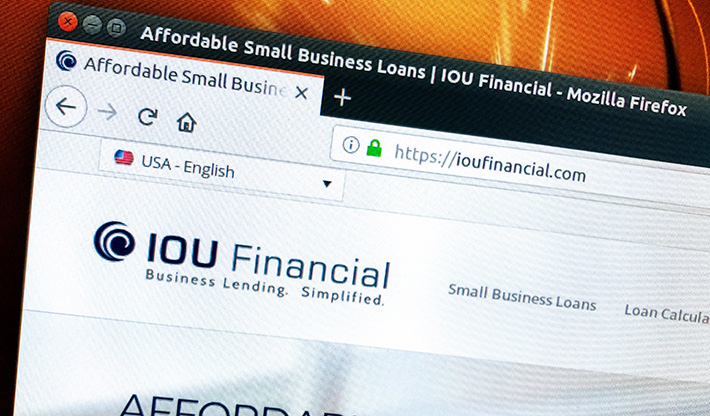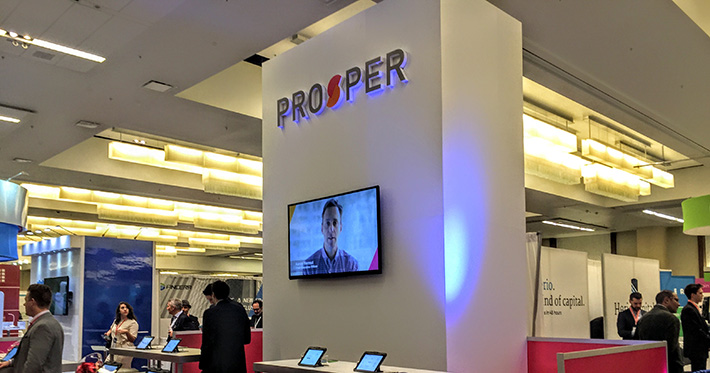Articles by deBanked Staff
Connecticut Commercial Financing Disclosure Bill Didn’t Make it Through
May 24, 2022 In an era where it has become almost fashionable for states to introduce commercial financing disclosure laws, the bill proposed in Connecticut this past March did not make it through. Its first draft was rough, freely using ambiguous terminology like “double dipping” which was clearly drawn from an original draft presented to the New York State legislature more than a year ago.
In an era where it has become almost fashionable for states to introduce commercial financing disclosure laws, the bill proposed in Connecticut this past March did not make it through. Its first draft was rough, freely using ambiguous terminology like “double dipping” which was clearly drawn from an original draft presented to the New York State legislature more than a year ago.
The bill stalled in the Senate despite a couple of favorable committee reports. The legislature adjourned for the year on May 4th, ending the bill’s prospects for advancement in 2022. This was the second time the bill had appeared so a version of it will likely return in 2023.
DoorDash Capital Warrants No Mention in Latest Report
May 23, 2022Readers interested in hearing the results of DoorDash’s foray in to MCA funding were keenly disappointed by the last earnings call. It didn’t even come up. The product was formally announced by DoorDash on February 9th. At the time, the company said that it was offering DoorDash merchants MCAs through a partner company named Parafin. The offers would be visible right in the DoorDash portal.
DoorDash reported Q1 revenue of $1.5B and a net loss of $167M. The material impact of DoorDash Capital, only in its infancy, was likely minimal then.
IOU Financial Was Profitable in Q1
May 19, 2022 IOU Financial may have originated $59.6M in small business loans in Q1, but the company also managed to do it profitably. Specifically, IOU recorded net earnings of $1.1M in Q1 2022 compared to a $100,000 net loss over the same period the year prior.
IOU Financial may have originated $59.6M in small business loans in Q1, but the company also managed to do it profitably. Specifically, IOU recorded net earnings of $1.1M in Q1 2022 compared to a $100,000 net loss over the same period the year prior.
“IOU Financial continues to deliver on its promise to stakeholders by growing loan originations and increasing profitability while continuing to invest the scalability of its operations and technology,” said Robert Gloer, President and CEO in a public statement.
IOU’s Q1 revenue totaled $3.9M, earned mostly from servicing and fee revenue that is generated by its marketplace model. $500,000 of it was attributed to referral fee revenue earned by IOU’s direct-to-merchant retail operation called ZING Funding.
Prosper Marketplace Receives Full Forgiveness of Its SBA Loan
May 18, 2022 Three months after the SBA told a Sioux Falls small business lender that it wasn’t eligible for PPP loan forgiveness because it was involved in lending, the same agency approved full forgiveness for one of the nation’s largest consumer lending businesses, Prosper Marketplace.
Three months after the SBA told a Sioux Falls small business lender that it wasn’t eligible for PPP loan forgiveness because it was involved in lending, the same agency approved full forgiveness for one of the nation’s largest consumer lending businesses, Prosper Marketplace.
“On March 21, 2022, we were notified by the SBA that all principal and interest under our PPP loan, totaling $8.6 million, was forgiven through a full forgiveness payment made on March 15, 2022 by the SBA to the lender of our PPP loan,” Prosper reported in its Q1 earnings. The company also announced that it had facilitated $560.6M in Borrower Loan originations in the first three months of this year so far.
Technically, Prosper is a “credit marketplace.” All loans originated through the marketplace are made by WebBank. Prosper facilitated $1.9B in loan originations last year alone.
Prosper was among the lenders that actually turned a profit in 2020, $18.5M to be precise, on $1.5B in loans facilitated.
Senior Business Lending Exec of Square Has Moved to Coinbase
May 16, 2022 Ronak Daya, who spearheaded several of Square Capital’s lending divisions, including “head of product for business lending” and “head of product for external lending and partnerships,” announced on twitter that he had moved on from the company. He had been involved in SMB lending for 7 straight years. His new role? Head of Financing Products at Coinbase.
Ronak Daya, who spearheaded several of Square Capital’s lending divisions, including “head of product for business lending” and “head of product for external lending and partnerships,” announced on twitter that he had moved on from the company. He had been involved in SMB lending for 7 straight years. His new role? Head of Financing Products at Coinbase.
If you thought Coinbase was just about buying Bitcoin, you’re wrong. Daya announced that he’ll be leading a team “to build lending and financing products both for consumers and institutional clients.”
“As I explored what came after Square, my primary focus was on challenging myself to go in a fundamentally new domain/area, and build for a new customer,” Daya wrote. “The priority was learning. Learning by building in domains that I am passionate about, but know little about.”
Convinced that the world is moving towards becoming a crypto-native economy, Daya added that he wants to “play a part in using trust, ease and education to onboard the next billion customers to a new financial system.”
Currently, Coinbase already offers a lending product, loans up to $1 million at 8% APR with monthly payments and no credit check. Though Bitcoin is used as collateral, payments are made by monthly ACH debit or through a linked USD wallet.
Register for The 4th Annual Alternative Finance Bar Association Conference
May 12, 2022 The fourth annual Alternative Finance Bar Association conference is BACK IN PERSON. This is the go-to event for and with the industry’s leading attorneys.
The fourth annual Alternative Finance Bar Association conference is BACK IN PERSON. This is the go-to event for and with the industry’s leading attorneys.
Mark your calendars for June 15th and June 16th in New York City and register by emailing Lindsey Rohan at lindsey@lrohanlaw.com. Registration is subject to approval and space availability.
Two-day program includes the following panels:
The State of the Industry: Industry experts discuss pending legislation, case law and market hurdles. They have both a regulatory panel ready to discuss what’s new in Virginia, Utah, NY and California as well as a Courtroom panel ready to discuss the winning and losing case law that has come out in the past year.
Bankruptcy: The aftermath of Chicago v. Fulton, In re Shoot the Moon and other pivotal bankruptcy cases that shape industry practices.
Ethics: Challenges faced by internal counsel and ways to navigate those pressures.
Collections: Trends in the post-COJ, post-COVID era.
Employment/Labor Law: The rise of labor use outside the U.S. What challenges arise from having call centers outside the U.S. Tax implications, oversight and practical benefits/detriments. Post-COVID remote work implications. What you need to be aware of to avoid creating liabilities.
The Art of Arbitration: The importance of a carefully drafted Arbitration Clause and the pro/cons of this venue.
Thinking Ahead: What technologies and market conditions will shape the future of the industry. Broad discussion of Blockchain technology, CRM systems, cannabis and what we can imagine will shape the future of Alternative finance.
WEDNESDAY KEYNOTE: David Picon, Esq. – It is with great pride that David Picon of Proskauer Rose will be the Keynote speaker. For years the AFBA has admired his work from afar. Attendees now have an opportunity to learn directly from David what makes for an unstoppable litigator.
THURSDAY SPECIAL EVENT: AFBA Game Show Mash-Up with the Industry’s Legendary Attorneys. Special Guests you will not want to miss!
Speakers:
- Andrew Smith, Covington & Burlington LLP
- Brian Simon, Hollis Public Affairs
- Jamie Polon, Mavrides Moyal Packman & Sadkin, LLP
- Patrick Siegfried, Rapid Finance
- Natalie Pappas, Rapid Finance
- Keith Ellis, Expansion Capital Group
- Kate Fisher, Hudson Cook LLP
- Cathy Brennan, Hudson Cook LLP
- Blake Sims, Hudson Cook LLP
- Steve Denis, Small Business Finance Association
- Christopher R. Murray, Murray Legal PLLC
- Mark Stout, Padfield & Stout
- Shanna Kaminski, Kaminski Law Group
- Michael W. Davis, DTO Law
- John Viskocil, Fora Financial
- Gabriel Mendelberg, Mendelberg P.C.
- Anthony F. Giuliano, Giuliano Law P.C.
- Jeffrey S. Cianciulli, Weir Greenblatt Pierce LLP
- David Picon, Proskauer Rose
- Jonathan Nelson, Dedicated Financial GBC
- Lindsey Rohan, BasePoint Capital LLC
- Christina Grigorian, Katten; Zach Miller, Burr & Foreman
- Renata Buhkman, Delta Bridge Funding
- Vanessa Petty, Settle
- Alexis Shapiro, Forward Financing
- Jan Owens, Manatt Phelps
- Scott Pearson, Manatt Phelps
- Jesse Michael Carlson, Kapitus
- Robert Zadek, Buchalter
When:
Day 1 – June 15
9:00am – 4:30pm: Offices of Proskauer Rose (includes light breakfast and lunch)
5:30pm – 7:30pm: Cocktails at Dear Irving
Day 2 – June 16
9:30am – 6:00pm: 15 W. 38th Street, 2nd Fl, Sinatra Room (includes light breakfast and lunch)
4:00pm: Wine & Cheese
Register soon, SPACE IS LIMITED!
deBanked is a sponsor of the event. Industry attorneys are highly encouraged to attend.
SoFi Says it is Working With SMB Finance Companies
May 10, 2022 SoFi may not exactly be in the small business lending market per se, but a digital payments company it acquired in April 2020, Galileo, has been put to good use.
SoFi may not exactly be in the small business lending market per se, but a digital payments company it acquired in April 2020, Galileo, has been put to good use.
“Galileo continues to expand its client base to include B2B and enterprise clients as adoption of modern cloud-based digital payments and banking has opened up new verticals and client types, use cases and opportunities,” said SoFi CEO Anthony Noto during the company’s Q1 earnings call. “For example, we launched two new clients in the first quarter that offer innovative working capital models for B2B and small- to medium-sized businesses.”
Noto said that they were not naming specific names at this time. “We will announce those [names] in conjunction with our partners as opposed to during our earnings call, but that’s increasingly a big channel for us, and we have a product pipeline to better serve the enterprise and SMB space holistically based on the demand we are seeing.”
SoFi reported a Q1 net loss of $110M, which it said was an improvement over the $177.6M net loss it recorded during the same period last year.
Shopify Capital Originated $346.7M in Business Funding in Q1
May 8, 2022 Shopify Capital originated $346.7M in MCAs and business loans in Q1, the company announced. That included merchants in the US, UK, and Canada. Though it was a 12% increase over the same period last year, the figure puts them virtually on par with originations in 2021 if the following three quarters hold steady.
Shopify Capital originated $346.7M in MCAs and business loans in Q1, the company announced. That included merchants in the US, UK, and Canada. Though it was a 12% increase over the same period last year, the figure puts them virtually on par with originations in 2021 if the following three quarters hold steady.
Shopify was one of the only online lenders whose origination volume substantially increased during covid. Most experienced significant drops but have since dramatically recovered.
“The hundreds of thousands of businesses that shifted their business to Shopify during the pandemic and stayed with us since can now take advantage of our powerful retail point-of-sale offering for a unified view of their sales online and offline,” said Shopify CEO Harley Finkelstein during the Q1 earnings call. “Shopify has been developing the world’s best point-of-sale retail software for years, and it’s now at the point where all merchants who came to Shopify during the pandemic can leverage it.”






























